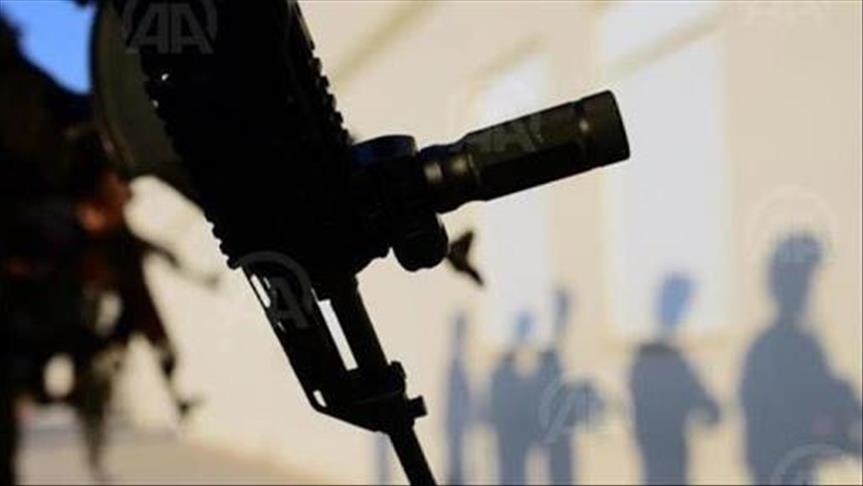British soldier urinating on an Iraqi captive.
They said he was driven away and dumped from the back of a moving vehicle. They did not know whether he survived.
British Prime Minister Tony Blair denounced the US conduct as contrary to coalition policy, hours before his spokesman denounced the apparent British behaviour.
"The Prime Minister agreed that allegations of this nature are treated most seriously, but they should not be taken as a reflection of the general behaviour of coalition forces and the work they are doing with the Iraqi people," the spokesman said.
The US pictures, broadcast by US network CBS, showed US troops alongside naked Iraqi prisoners.
One photograph showed a hooded prisoner with wires attached to his hands, standing on a box. CBS said he had been told that if he fell off, he would be electrocuted.
US troops were shown laughing and gesturing at the naked detainees. One image showed the prisoners stacked one atop another in a pyramid, some positioned to simulate sex acts.
Brigadier-General Janis Karpinski, in charge of US-run prisons in Iraq, was suspended and was under investigation, the US military said.
The International Committee of the Red Cross, which monitors compliance with the Geneva Convention on treatment of prisoners of war, said the images were "troubling and disturbing".
Outrage was widespread in the Arab world. The Arab League denounced the mistreatment and called on the US-led coalition to punish those responsible for the "savage acts".
Al-Arabiya, one of the Arabic television channels to broadcast the pictures, said the humiliating images showed the savagery of the US troops involved.
A presenter for Qatar-based Al-Jazeera said the images showed the US soldiers’ unethical and inhuman conduct.
The news came at a delicate moment for Mr Bush, on the anniversary of his controversial May 1 announcement last year that "major combat operations" had ended in Iraq, made standing in front of a giant "Mission Accomplished" banner aboard the aircraft carrier USS Abraham Lincoln.
However, 134 US soldiers were killed in Iraq in April 2004, more than the 109 killed between the March 20, 2003, invasion and Mr Bush’s May 1 speech.
"A year ago, I did give the speech from the carrier saying that we had achieved an important objective, that we had accomplished a mission, which was the removal of Saddam Hussein," Mr Bush said on the eve of the anniversary of his remarks.
"I also said on that carrier that day, that there was still difficult work ahead."
The commander of US forces in Iraq, General John Abizaid, described the pullout from Fallujah as an "opportunity, not necessarily an agreement" to end the fighting.
A radical Shiite cleric, whose call to kill or drive out the US-led occupying forces was central to the siege of Fallujah, remained defiant.
"They will not silence me," Muqtada al-Sadr told thousands of supporters on Friday at a mosque outside Najaf, where he has been hiding for three weeks.
Meanwhile, US officials said consensus neared on appointing Iraqi Planning Minister Mehdi Hafez to lead an interim Iraqi government from June 30.


